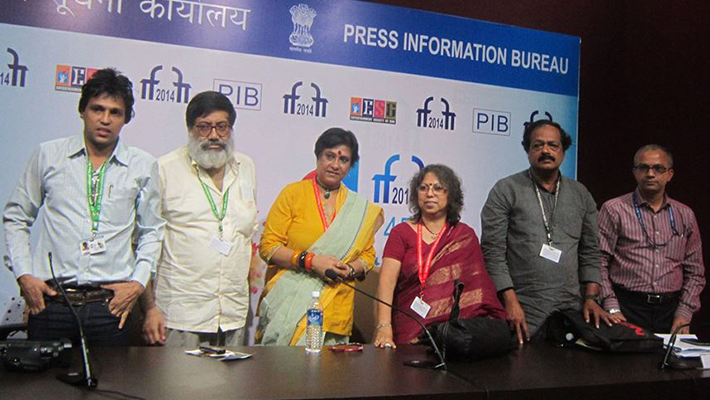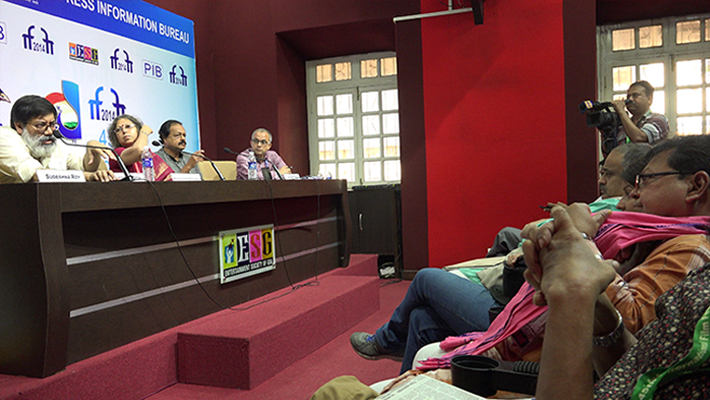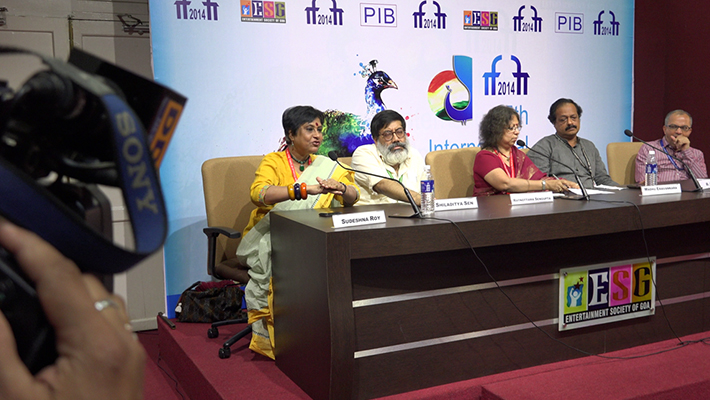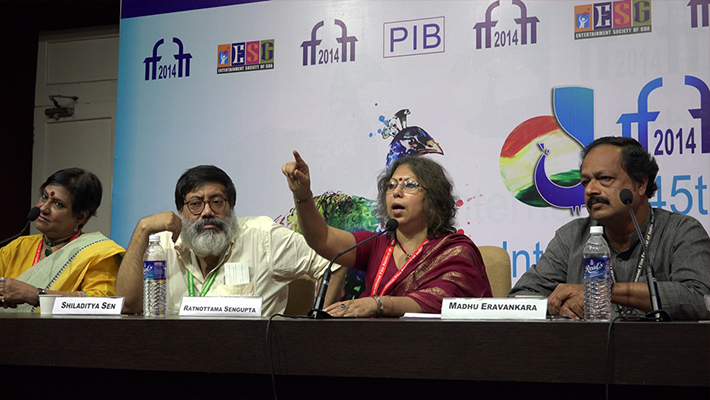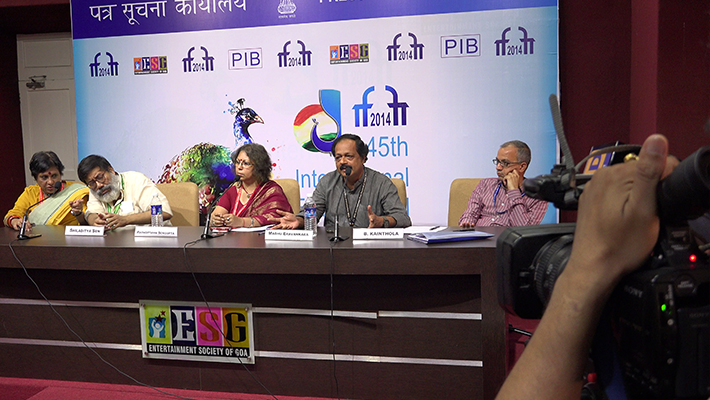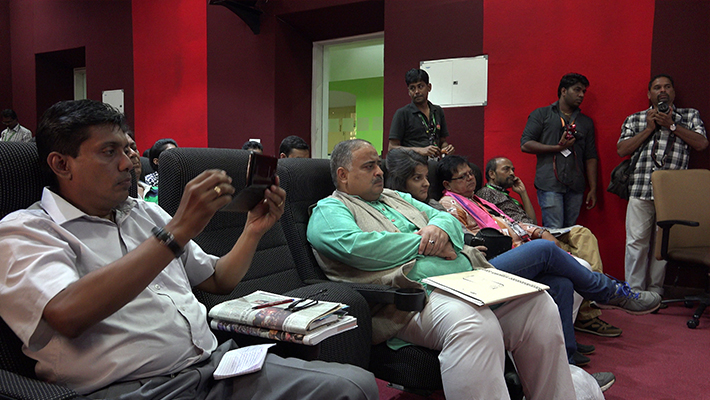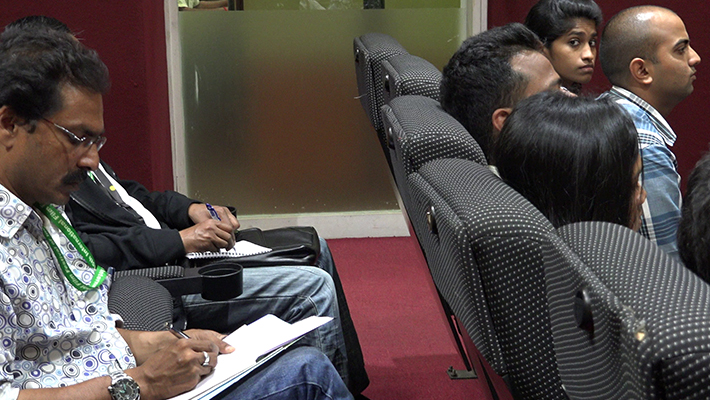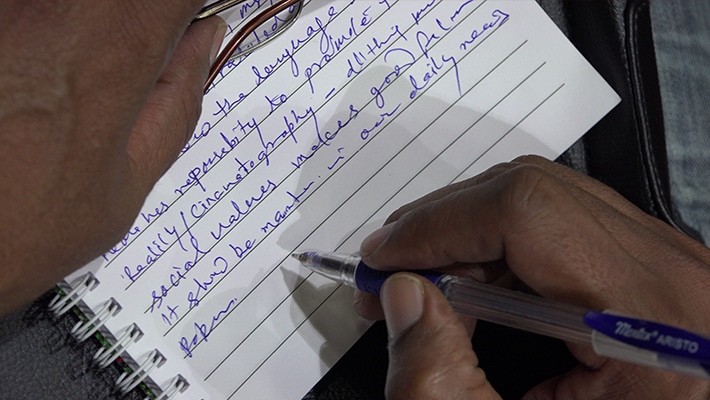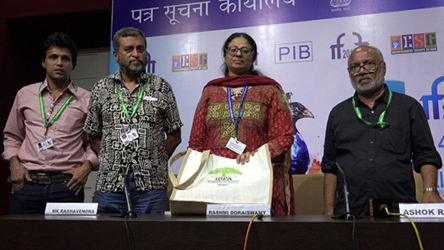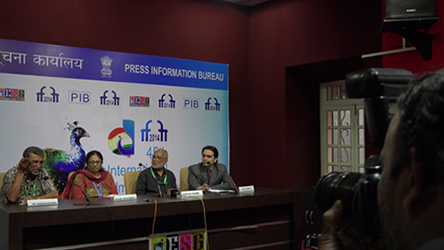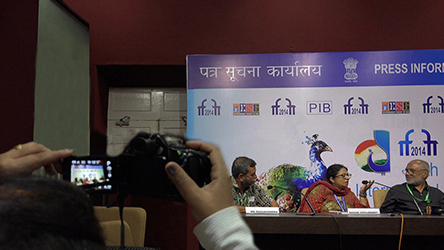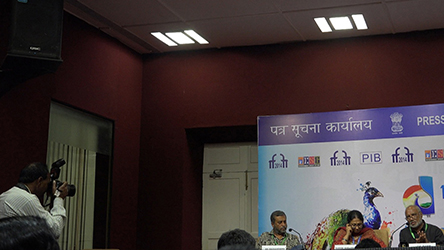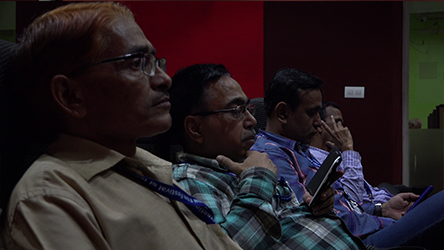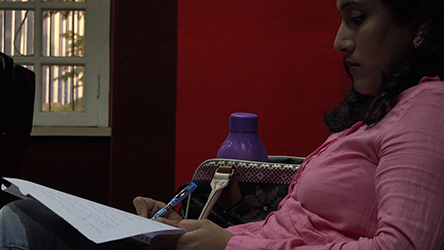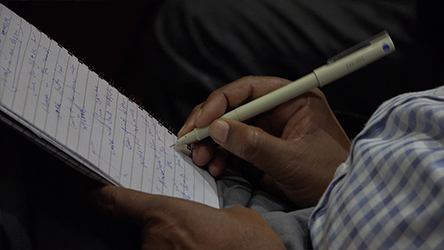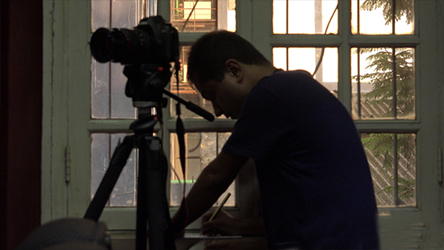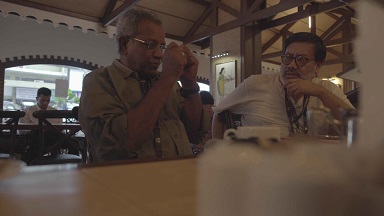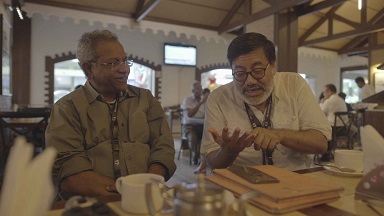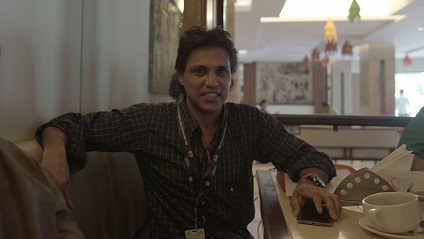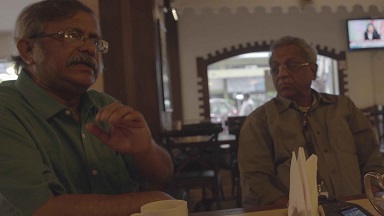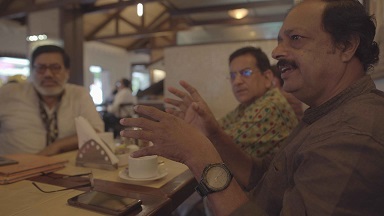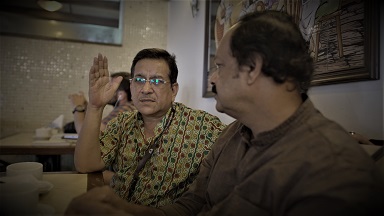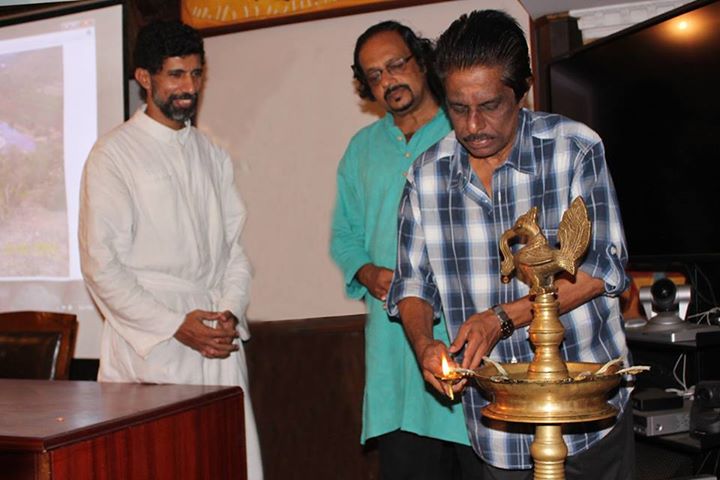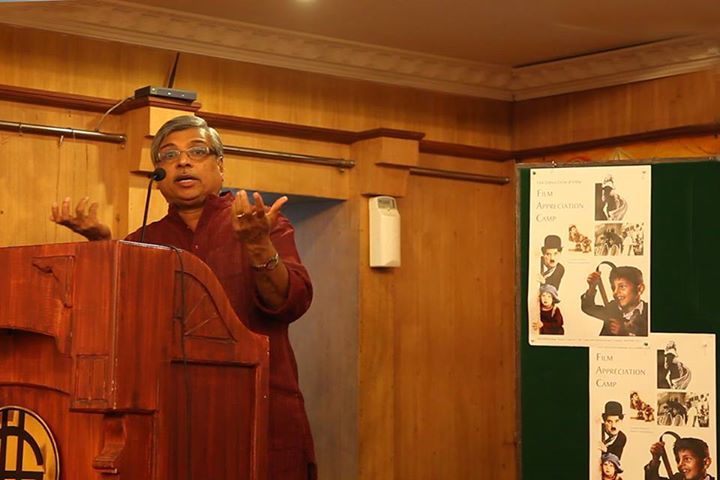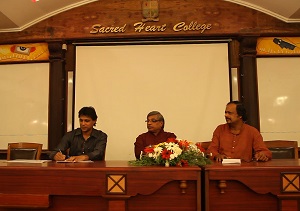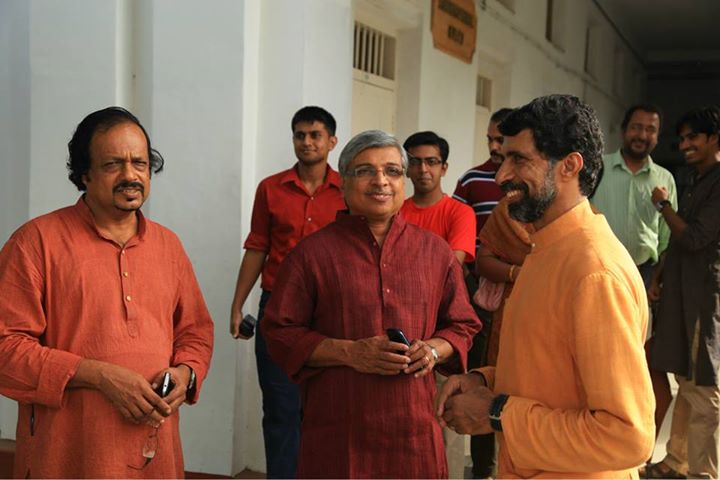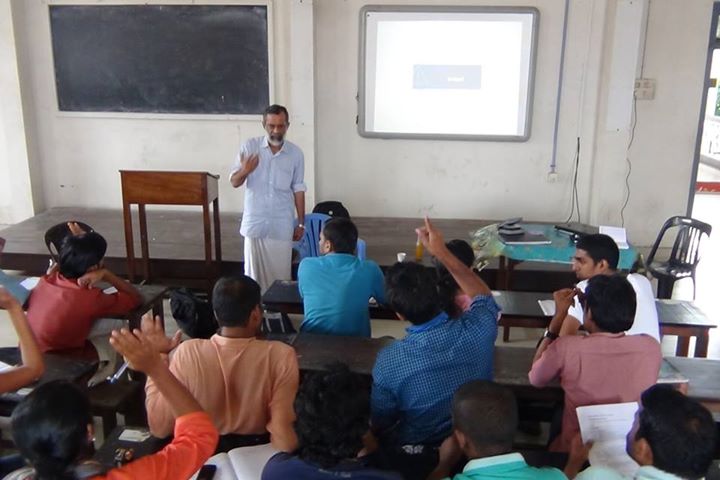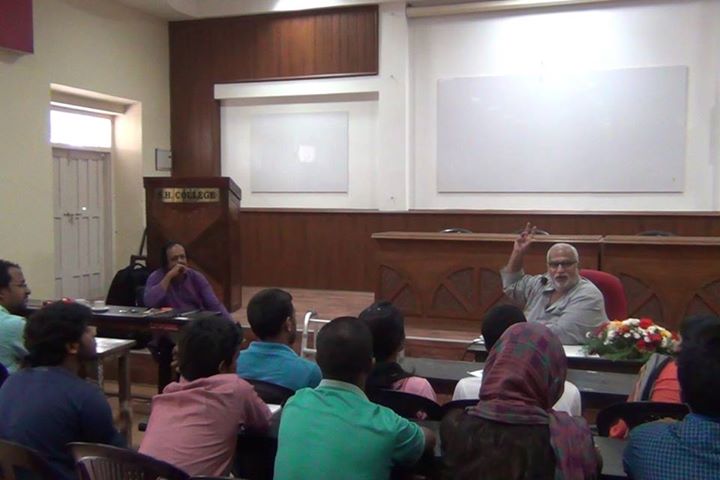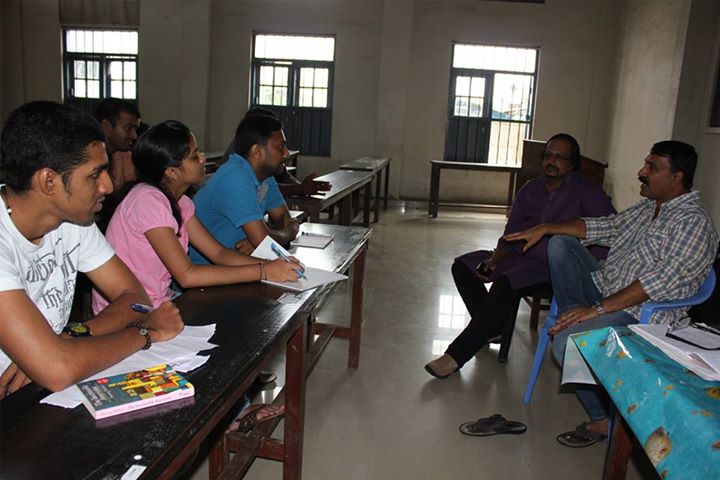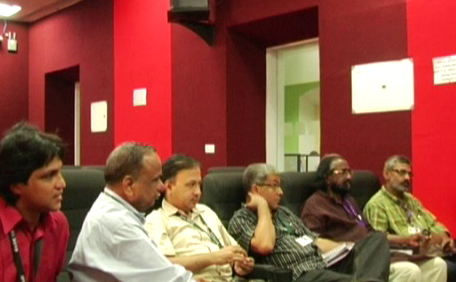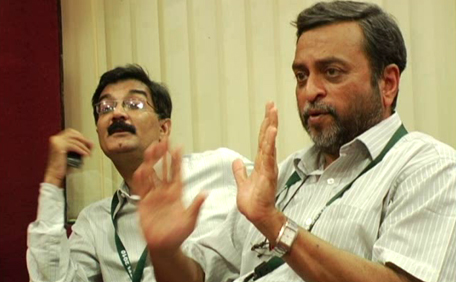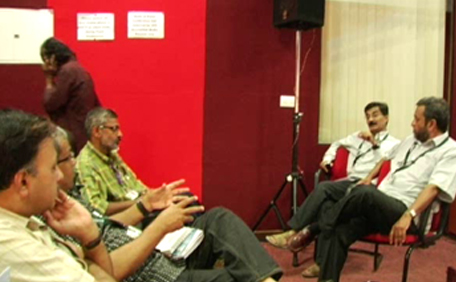FCCI panel discussions at international film festivals
IFFI, Goa | 2014
session 1 — Have newspapers replaced literature in cinema?
The FCCI panel comprised Sudeshna Roy, Siladitya Sen, Ratnottama Sengupta, and Madhu Eravankara.
Sudeshna Roy asserted that writers often object to any deviation from published texts, be they novel or stories, although filmmakers have to think of tailoring the content for a 90 to 100 minute production and within a limited budget.
Siladitya Sen pointed out that today there are two awards for the writing, one for ‘original screenplay’ and another for ‘adapted screenplay,’ and asked if there is a crisis of good literature.
Ratnottama Sengupta felt that news stories that are discussed on TV channels become a part of everyone’s life, more so than literature in any language. So, when a film is adapted from the former, people would know about it more than that of a film adapted from a classic novel.
Madhu Eravankara was of the view that literature and cinema are two entirely different art forms, and therefore only a person who knows the difference between the two can make a successful adaption.
Dalton, who opted to record the session rather than being a part of it, opined, “Ideas arrive from reality. There has however been a paradigm shift in how we acquire information. Centuries ago, villagers got their news from each other. Today, in addition to our immediate neighborhood, we also have the global village.”
IFFI, Goa | 2014
session 2 — Does technology kill good cinema and sensitivity?
The FCCI panel comprised MK Raghavendra, Rashmi Doraiswamy, and Ashok Rane.
MK Raghavendra emphasized that Kubrick’s 2001: A Space Odyssey was made around half a century ago, but despite the revolutionary changes in technology, no other filmmaker has to date made a film with a similarly profound influence on how we think.
Rashmi Doraiswamy stated that original is no more relevant in this synthetic culture of packaged entertainment, and that reality and technology are both fragmented to today’s connected generation, with each influencing the other.
Ashok Rane upheld the story and the storytelling above everything, and opined that in an industry where the producers want to use magic technologies without even thinking about story, plot or characters, technology is doing more harm than benefit.
Dalton, who organised the panel, later added, “Back in the pioneering days of cinema, Chaplin’s mastery over special effects was so perfect that even to today’s audience, his films look documentarily real.”
Filmmakers in dialogue with FCCI
Shaji N. Karun
IFFI, Goa | 2018
Shaji Karun declared, “Criticism is an important part of cinema, but it is being lost in this dust and fog social media. Nowadays, people who have no clarity and who know nothing about the grammar of cinema are writing whatever they feel like on social networking sites and are claiming to be critics. This is harmful to cinema. The motive must be to bring criticism back. Else, good cinema will become extinct. There is a lack of film literacy in our country.”
In focus: Shaji Karun, Siladitya Sen, Dalton, Premendra Mazumder, Utpal Datta, & Madhu Eravankara.
Subhash Ghai
IFFI, Goa | 2013
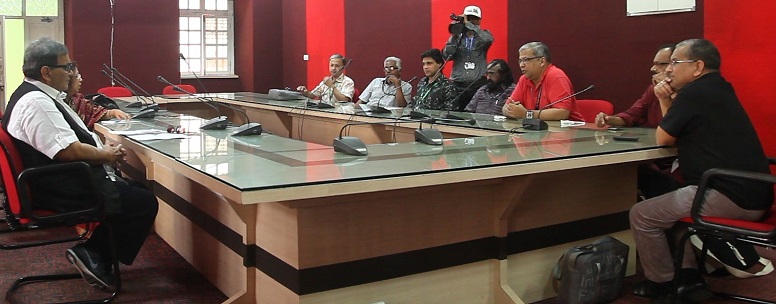
Shubhash Ghai quoted the Oscar rules for its juries, “You are in a highly responsible profession. You have the responsibility to look into the growth of civilization and of the next generation. We filmmakers look upon you as God. So guide us in your reviews, tell us where we lack, and how we can improve. But do not mock us. Creative people are extra sensitive, so talk like a mother, not like an opponent.”
In focus: Ghai, Ratnottoma Sengupta, Utpal Borpujari, CS Venkiteswaran, Dalton, VK Joseph, Saibal Chatterjee, Madhu Eravankara & Utpal Dutta. Late Ervell Menezes too joined in a little later.
Cinematograper: Films Division.
FCCI film appreciation camp
1. Filmmaker Hari Kumar lights the sacred lamp.
2. Filmmaker Kamal, chief guest at the closing ceremony.
3. On the dais: Dalton, Kamal, and Madhu Eravankara.
4. Madhu Eravankara, Kamal, and Fr. Prashant, the college principal.
5. Film critic I Shanmukhadas takes class.
6. Scriptwriter John Paul takes class.
7. Filmmaker VK Prakash takes class.
film critics meet prior to FCCI founding
Prior to the official registration of the Society, several one-to-one as well as group meetings were held with film critics from Mumbai, Delhi, Bengaluru and other areas; the pics above were taken at one such, at the Press Conference room at IFFI 2011.
In focus: Dalton, HN Narahari Rao, Utpal Borpujari, Saibal Chatterjee, VK Joseph, GP Ramachandran, Ziya Us Salam, and MK Raghavendra.

